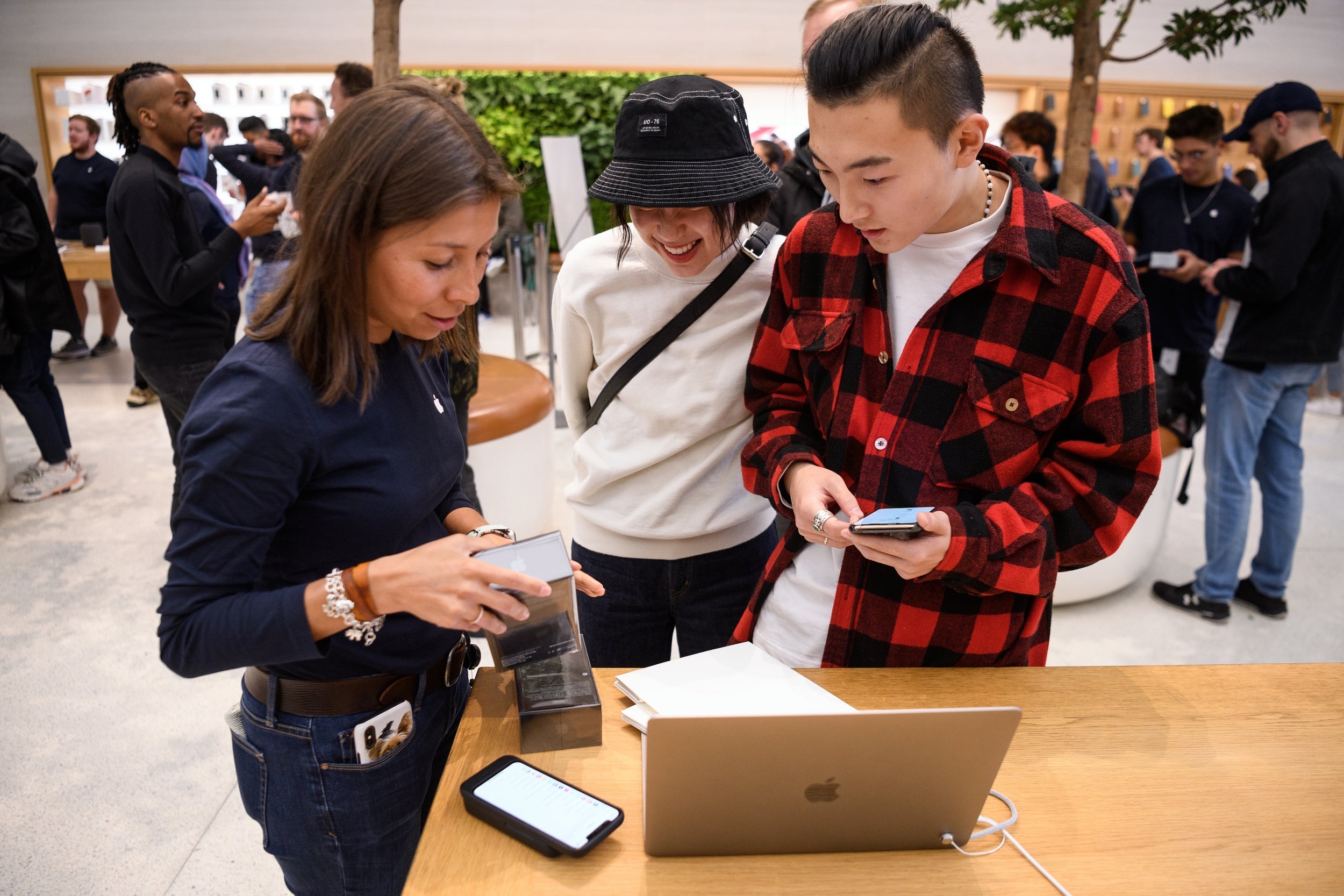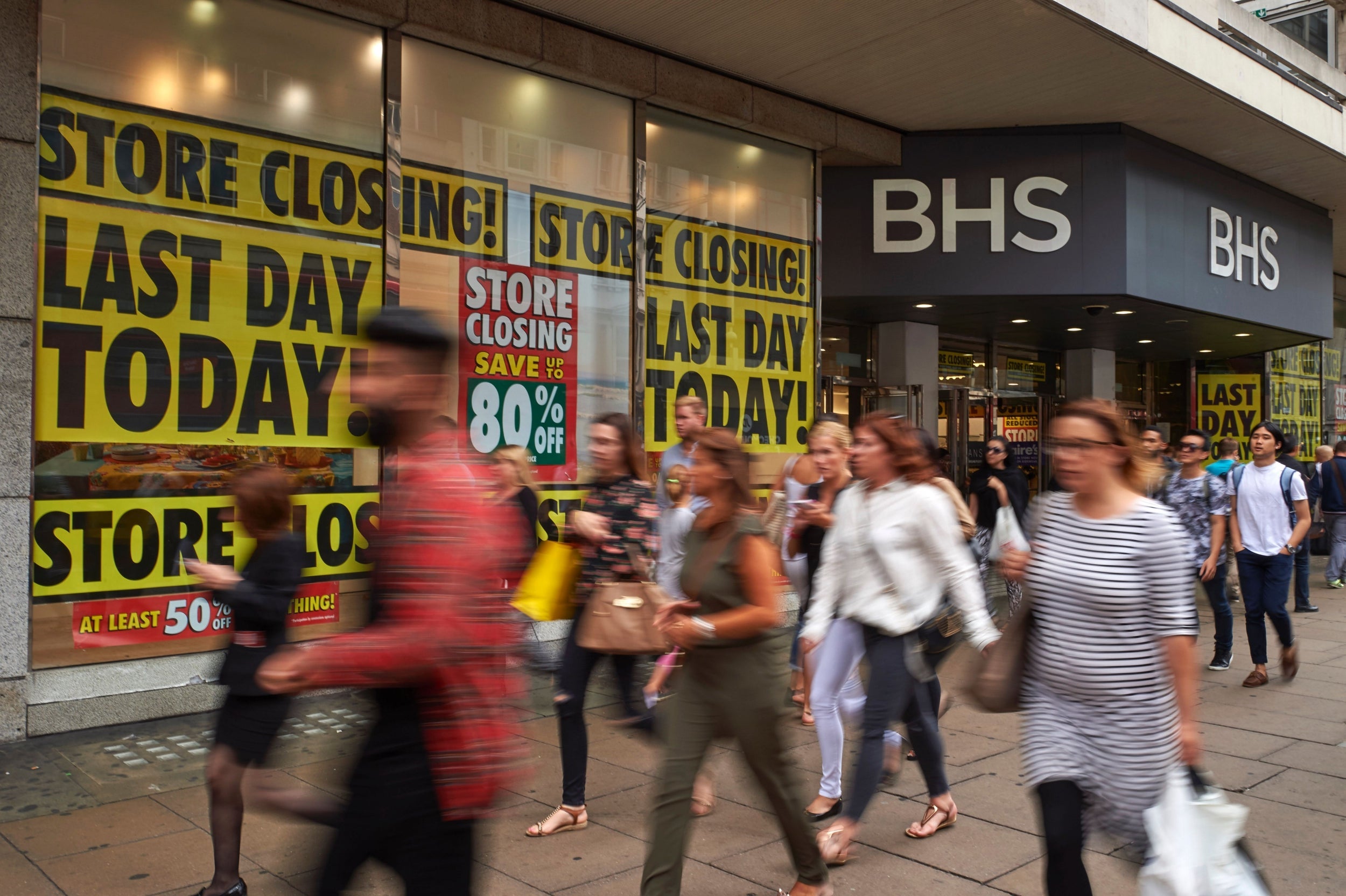Apple stores are flourishing while other high street chains close
Another crop of retailers is about to bite the dust – and the damage is self-inflicted. Chris Blackhurst explains how a miserable shopping experience led to the downfall of well-know but unloved stores


Shopping in London’s West End it is impossible to escape the conclusion that Apple is getting something absolutely right. While other stores nearby are either empty or populated by a few disinterested browsers, the branches of the Apple Store in Covent Garden and Regent Street are heaving – from the moment they open to when they close. Apart from the launch of the sales in the department stores, nothing else comes close.
This, of course, is not new. But what is often overlooked in relaying Apple’s rise to retailer supreme is that this is a technology company, it designs, manufactures and sells smart products. It’s also a consummate online retailer. Yet, here it is, making bricks and mortar flourish – this at a time when the majority of other high street chains are wilting or going out of business completely.
Apple is extremely adept at creating an unbreakable circle, of branded device, owner and company. The best way to get it checked or repaired is to visit the “Genius Bar” of experts based in the nearest Apple Store. The only method of purchasing a brand new Apple product is from one of its shops, the company website or a licensed outlet, of which there are not many. Likewise, a trade-in can only be executed at the Apple Store or via the website.

The Apple Store’s success, however, extends beyond being a key player in Apple’s monopolistic, self-fulfilling chain. It’s also a supplier of an experience. As we enter the 2020s, nothing resonates more with retailers than the need to provide an experience. Merely being there, filling the shelves, making the displays look passably interesting, standing and taking money with a bit of after-sales service thrown in, will no longer suffice. Online sellers do that, and they do it better, cheaper and quicker.
Toys R Us managed to make toy-buying less than joyful. The shops were huge, with toys piled up high (too high for the little customers). The mood was one of uncaring
If you want to touch and feel and play with an Apple product to your heart’s content, you can. The surroundings are clean and uncluttered. The focus is entirely upon Apple. The staff are young, enthusiastic, informal, funky, keen and knowledgable. They give you their undivided attention. They ask if you’re happy as you leave. They make visiting and buying fun. Here’s the difference: if we tell our children we’re going to any store you care to mention they will almost always groan and protest. If we say we’re going to the Apple Store they will want to come. The challenge facing other retailers is to do what Apple does so well, to become a destination experience.
It’s not easy, of course, but the choice is stark: life or death. Later this month we will be treated to the inevitable roll-call of store groups that did not make it, for who this current season is their last. As the decade ended, the BBC published a list of the 10 biggest UK retail brands we have lost in the past 10 years. They were once popular household names: Toys R Us, Borders, BHS, Staples, Maplin, Barratts, Blockbuster, Tie Rack, Poundworld, Phones4U. Once giants, today they’re consigned to memory, the subject in years to come of pub quiz questions and doubtless, business school dissertations.
Individually, they each had their reasons for disappearing. Collectively, though, they were united by one factor: they failed to create a shopping experience. They did not create any buzz, any excitement. To be fair, Borders had a stab, putting on events in the book shops. But it felt like too little, too late.
The rest, though, seemed to specialise in engendering misery. Toys R Us managed to make toy-buying less than joyful. The shops were huge, with toys piled up high (too high for the little customers). The mood was one of uncaring. They could have employed entertainers, occupied the children while the parents enjoyed a coffee, displayed the toys properly, and put on specialist shows (such as the “must-see Lego spectacular”) but they were having none of it. Instead, Toys R Us was somewhere to enter and exit in a hurry.
BHS was dull, seemingly applying most energy to cooking up a cheap breakfast for pensioners. Staples catered for distressed purchases, where you went for a missing piece of stationery or office equipment. But that’s all that Staples supplied. Staples did not make you want to go there unless you had to. Online does it more efficiently.

Blockbuster was clobbered by the rise of online streaming. Nevertheless, its inability to adapt, to take stores that had once been a place where young people could meet and chat while they searched for a movie, and move with the times, was its undoing.
I confess to liking Maplin. Why? Because it sold all manner of electronic paraphernalia and its staff were geeks. But I never really went out of choice, it was always when I required a replacement part. Tie Rack, again, was for those in a panic: for the man at the station or airport who had forgotten to pack a tie. Poundworld was just another discounter, offering no difference, no USP. Similarly, Barratts sold shoes, and that was about it. Its competitors sold top brands and better designed foreign imports; Barratts stuck rigidly to a formula that was out of date and increasingly unwanted. Phones4U was brash and horrible. Going there felt cheap and second-best.
They are names that were well-known, they still are, but none were ever loved. Nobody clamoured to go there. Soon they will be joined by this year’s crop of casualties. Meanwhile, the Apple Store remains packed. Retailers, get along there and see for yourselves, and begin absorbing and changing. Or else, you too, will be heading for oblivion.
Join our commenting forum
Join thought-provoking conversations, follow other Independent readers and see their replies
Comments